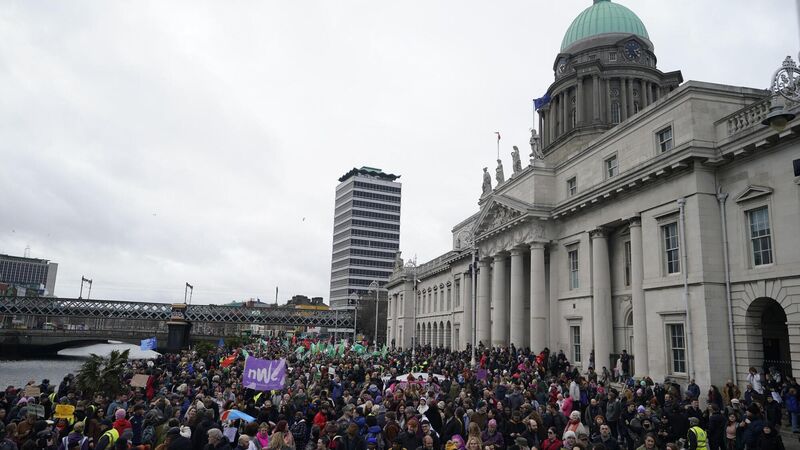Fergus Finlay: Magnificent march a first step to counter attempt at Irish apartheid

People take part in a demonstration in support of migration and diversity in Dublin City centre. Picture: Niall Carson/PA Wire
It’s a little over half a century since I first took part in a protest against apartheid. I never thought it might be necessary to walk in a march against people who effectively want to introduce apartheid in Ireland.
I think it was 1970. Everyone who got involved in any kind of protest back then was regarded as dangerous. Even (maybe especially!) a tiny group of students who had got on a bus from Cork to Limerick to stand against the Springboks outside Thomond Park.












